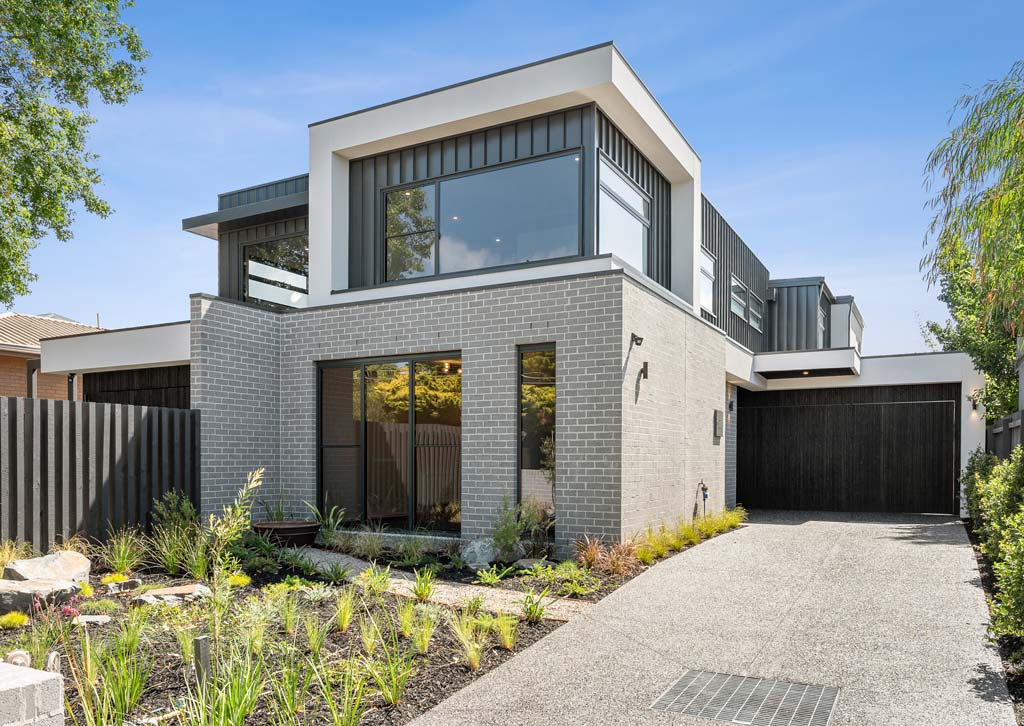If you ever been on the verge of finalising a contract with your house builder to begin building, only to have them back out last minute? If they do, it might not be very pleasant.
If this tragic incident does occur to you, there are legal measures that may provide you with a remedy. In this article, we will investigate what could lead a home builder to pull out of an agreement contract and whether or not this would have any repercussions.
We'll also examine methods for preventing these incidents and talk about how consulting an attorney might better safeguard your rights when working on a project with contractors. Keep reading to find out what to anticipate.
7 Facts About New Home Builder Contracts:
- New construction often requires a larger earnest money deposit than existing homes. You're having a custom house built, and the contractor is giving you free rein over all aesthetic and functional decisions. They normally ask for earnest money when the contract is signed and then more upfront payment as a percentage of finishes chosen along the way because of the inherent risk involved (if you back out, the next buyer may still not like the green carpet originally chosen!). (cost varies by contractor)
- There's a chance the buyer's loan "out" won't be as advantageous as it would be on a resale. If a buyer has trouble getting a mortgage, they have the option to pull out of a resale transaction up until the Loan Objection Deadline without losing their earnest money. A buyer has the right to cancel a new construction contract within 30 to 45 days for any reason, although the builder may withhold some or all of the buyer's earnest money as a penalty. Don't assume there is an "exit" from the loan just because they say there is one; exercise caution and read all fine language. The builder will usually keep the earnest money if the buyer's loan falls through at a late stage in the construction process.
- A builder's bid will not be affected by a low appraisal. The builder is not obligated to reduce the selling price if an after-construction evaluation determines the home is worth less than expected. The bank can still make a loan on the property, but the buyer will need to make up the difference with cash. Unlike with a resale, the buyer will lose their deposit if they decide to back out because of a low assessment.
- The standard time frame builders give to complete a house from start to finish is between one and two years. Buyers should constantly be wary of this. The salespeople assured them that the house could be built in eight months, but when it came time the sign the contract, the builders gave themselves a lot of wiggle room and most said it would take two years. (Never have we seen something last anywhere near two years.)
- New construction inspections are done differently. You can get out of a resale transaction if a house inspection reveals major problems. You can't cancel a new construction project if problems are discovered, but problems can be fixed while the project is still in progress. (or with a guarantee following the sale)
- Builders typically do not allow for many revisions. Buyers should be aware that the vast majority of constructors are "production builders," which means they construct homes according to a standard blueprint. Unless otherwise specified, the floor plan you order from a builder will be the one you receive. Anyone in the market for a truly one-of-a-kind structure, where modifications are welcome, should contact "custom" builders.
- Last but not least, buyers cannot immediately lock in interest rates on new construction due to the lengthier time frames involved compared to resale contracts. Rate locking for new construction will not be available until much later. This might be especially unsettling when interest rates are climbing.
After reviewing their contracts with builders, most purchasers have these seven concerns.
What we're arguing is that secondhand homes are better than new ones. Not at all! For a lot of our clients, the extended construction period is worth it since it gives them more room to manoeuvre in the design process and gives them time to sell their current house.
We'd like to warn prospective buyers that the purchase contract process differs slightly from typical secondary market transactions.
When Can A Builder End A Contract?
A builder has the right to cancel a contract if the necessary permissions and site plans are denied or the builder determines that there is little chance that the home will be constructed. The builder will add a cancellation clause in every sales agreement.
In some circumstances, a builder may void a contract.
Site Plans And Permits That Have Not Been Approved
When a home construction company begins work on a new neighbourhood, there are no preexisting buildings to use as a starting point. In reality, no groundwork has even begun. Most first-phase communities are still in the early stages of the permit and site plan stages of development.
The construction company will apply to the city and any other relevant permitting agencies for approval of the site plans and necessary permits. In some cases, requests for permits or approval of construction designs are denied. Site plans can be denied even when a developer has a substantial financial and emotional investment in a neighbourhood and multiple ongoing projects.
When a home builder receives a site plan denial, they must start from scratch. The contractor here isn't very confident that the project will return or when they'll be able to wrap things up. Home builders sometimes back out of purchase agreements when the city rejects their site plans.
The contractor's legal department will get the ball rolling on terminating the contract after the cancellation has been confirmed by the contractor.
For instance, the attorney's office initially notified us of the contract cancellation and the return of our deposit checks via email.
A builder who cancels a project must wait at least one year before reselling the property. The developer, in our instance, had to wait several months for site plan approval.
Lot-Specific Building Requirements
Permits for a home construction project on a certain property could be denied for some reason.
A detached home on the corner lot was the focus of a new construction project by a home builder doing pre-construction work. This house couldn't be built because of the next property owner's setback regulations. The builder's response was to construct yet another show house, this time using a fresh set of floor plans.
A developer can begin marketing a project before breaking ground. Typically, builders invest a sizable sum of money into a project upfront and then wait for a return on that investment. The builder's bottom line might take a hit in some ways if a site plan is delayed or denied.
The Builder's Lack Of Sales
This is one valid justification for terminating a contract with a home builder. If the developer does not get enough revenue for the project (occasionally 80% is necessary), they can back out of the deal.
Although this is not very prevalent these days, it is nevertheless a standard part of most contracts. Tarion offers various protections to those who buy a condo during the pre-construction phase. Your real estate attorney can fill you in on the specifics.
Approvals For Zoning
If the builder does not already have the necessary zoning authority, they must obtain it within ten days of the sale and give proof of approval to the buyer. A home builder may terminate a contract under these terms, which will be outlined in the agreements.
Contract Cancellation Provisions
New housing home buyers must get information sheets as of January 2020 per Tarion's new terms for procurements and sales. Buyers shall be made aware of the possibility that a condominium unit will never be constructed in this document.
1st Tentative Occupancy Date is the earliest you can move into the home and is included in every purchase agreement. We know from experience in the construction industry that this is only a rough estimate. There are several potential causes for a delay in the schedule.
The declaration of important dates should not be skipped over.
Early termination clauses are included in every new construction purchase agreement. The builder may terminate the agreement if the following requirements are not met:
- There will be a specified deadline by which a given sales quota must be met.
- Specific site plans & permits will be granted before the given date.
- By the specified date, all necessary funding will have been confirmed.
If you decide to cancel your condo contract, the builder is obligated to restore your deposit plus interest.
What To Do If A Contractor Terminates A Contract
If a contractor cancels, it won't end the world. That may even be beneficial, as you wouldn't want a disinterested contractor to cut corners to complete the project fast and cheaply.
But, there are measures you must take to ensure a tidy conclusion. Most states have regulations in place to help you navigate the procedure.
Check The Contract
A cancellation provision that specifies who can terminate the agreement and under what circumstances is an essential part of any comprehensive contract. In this section, you should also address who is responsible for paying what if the contract is terminated. If your contractor has any recourse after you sign, that will be spelt out in this document, so read it carefully before signing.
Without a specific cancellation clause, a contractor cannot void a contract without convincing a judge that doing so is in good faith. If both parties have signed a contract without a good reason to cancel, then they are bound to the terms of their agreement and may be held financially responsible for any failure to do so. Nonetheless, cancellation is an option when you are the sole signatory.
Cancel The Contract
A signed contract can typically be revoked within three business days, the standard in most states. However, this amount may vary from state to state, so it's important to research the legislation in your area.
Cancellation requests received by mail prior to the cancellation deadline that are signed and dated by the customer are considered timely again and typically three days after you sign the contract.
Whenever the initial three days have passed, and you still want to cancel the contract, you should seek legal advice.
Find A New Contractor
Consider it a favour when a contractor cancels upon you. At least they didn't start work on the project and then disappear when they realised they couldn't finish it. If the contractor signs the contract but later backs out (which would constitute a breach of contract), you should talk to a lawyer about who is responsible for what.
Once the contractor cancels and you nullify the contract, you're back where you started. Please choose a different contractor who meets your needs and schedule a meeting to discuss the task with them. Cancelling a contract can cause delays in a project, but you and your new contractor can talk about the situation and come up with a solution.
Frequently Asked Questions About Contract Home Building
Can I cancel a builder?
A builder or decorator will only begin work if you've formed a contract, either written or verbal. You'll need to negotiate with the business if you want to cancel and get any money refunded. They may ask you to pay for any or all of the following: a cancellation fee.
Contemporary House Design for a Narrow Lot.
The cheapest house to build doesn't have to be small. With two stories of living space, this contemporary house plan would work great on a narrow lot. The super-simple design and open floor plan give you a spacious feeling, while cutting back on costs.
Custom-built homes average around nine months, while personalized production plans average near seven months. Because the floor plans used by production builders have been built many times before, there are generally fewer delays.
Ask about their background, experience and business stability. They should be able to provide specific examples of their previous work and references. Builders need to earn your confidence; how they act before they get the job tells you a lot about them.




